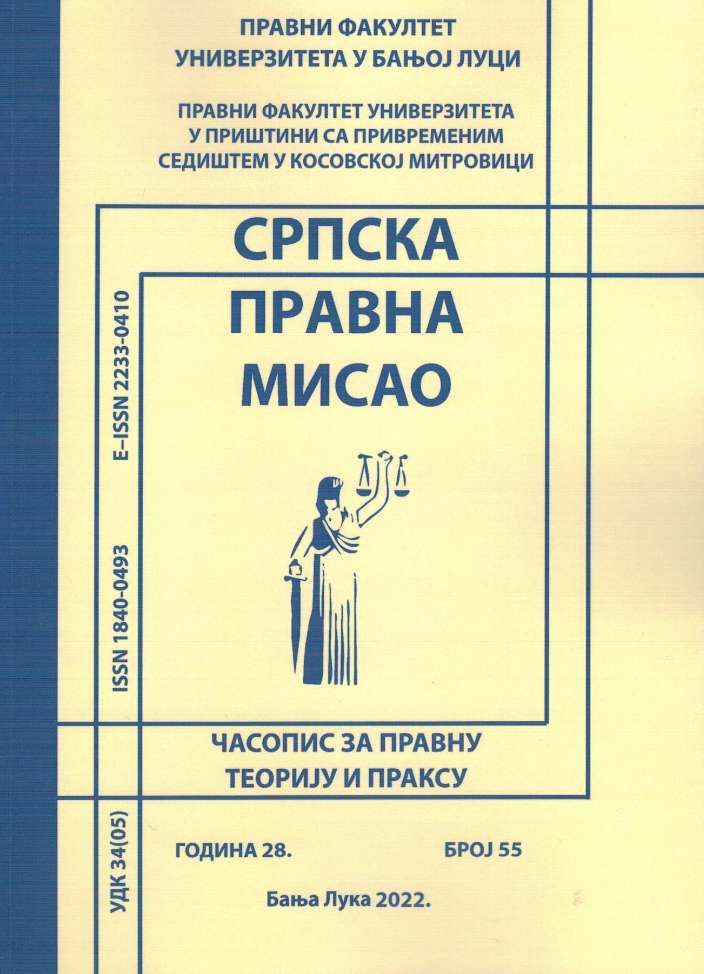LEGAL POSITION OF THE CHURCH OF ENGLAND IN THE PROVISIONS OF THE GREAT CHARTER OF FREEDOM FROM 1215
DOI:
https://doi.org/10.7251/SPMSR2255043T%20Abstract
The paper deals with the analysis of the provisions on the position of the Church of England in one of the oldest constitutional documents, the circumstances in which this legal act was passed, as well as its consequences for both English society and legal systems in other countries. The Great Charter of Freedoms from 1215, as such, represents a universal declaration of human rights and freedoms. Its provisions will serve as an inspiration in the following centuries to all those who fight for the preservation of these basic human values.
The provisions on the position of the Church of England are very important for the further course of the destiny and status of this church. In them, the idea of a free church, an autonomous organization with the right to freely choose the clergy without the influence of the ruler and the Roman Pope, is spiced up. Therefore, the Roman Pope Innocent III will suspend it with his Bull, considering it illegal and shameful.
Regardless of the short period, which was only two months, that the Charter was in force, it remained as a basis in the new struggles between the estates and the crown, for the legal order in English society. Some of its norms are still found today in the legal system of Anglo-Saxon law.
Downloads
Published
Issue
Section
License

This work is licensed under a Creative Commons Attribution-NonCommercial-NoDerivatives 4.0 International License.



